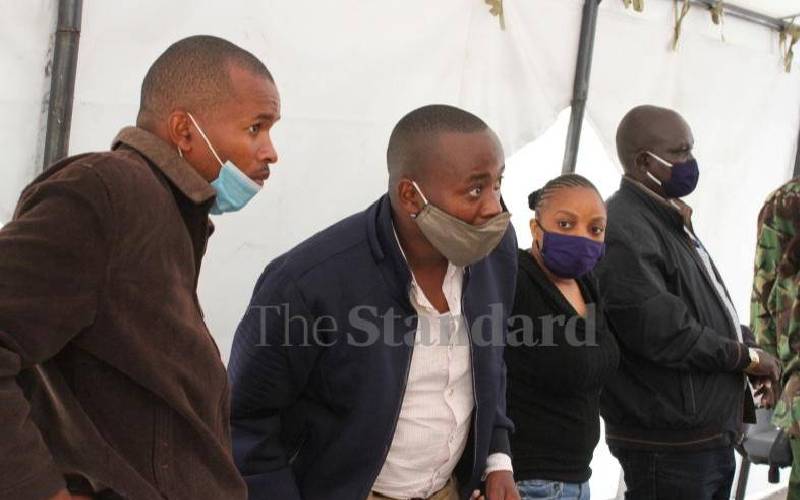×
The Standard e-Paper
Stay Informed, Even Offline

A civilian informer Peter Ngugi with police officers Leonard Mwangi, Sylvia Wanjiku, and Fredrick Leliman in the dock at a Milimani court on Monday, October 19, 2020. [Collins Kweyu, Standard]
It has been nearly six years since lawyer Willy Kimani, his client and a taxi driver were killed in an open field, their bodies stashed in bags and dumped in a river.